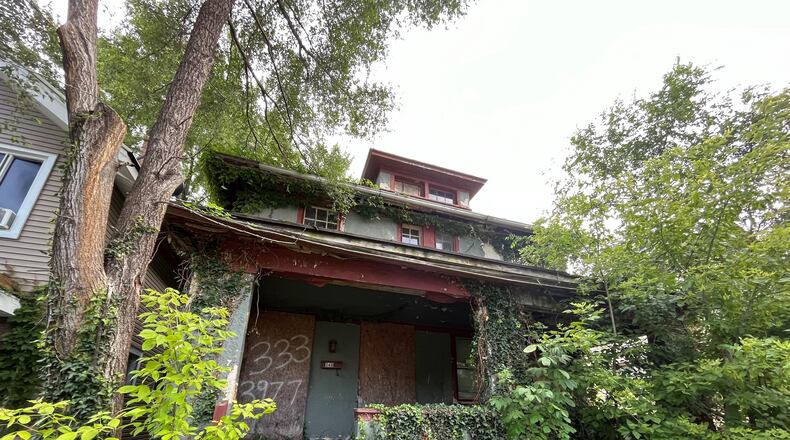The city says too often its hands are tied when out-of-state owners and limited liability companies (LLCs) neglect their properties and allow them to fall into disrepair. Officials say this change would create a new housing enforcement tool and it likely will be the first step of many.
Dayton officials say high due process standards in criminal cases hamstring efforts to make property owners bring their properties into compliance with city housing code.
“The city will still have the option to pursue a violation in criminal court, but now the city can instead cite the person civilly,” said Barb Doseck, Dayton’s law director.
Right now, housing code violations are handled as criminal offenses in criminal court, Doseck said.
Defendants in criminal cases are afforded due process because the charges go on a person’s criminal record and a conviction can lead to jail time, she said. Civil proceedings do not have the same due process requirements.
Doseck said the city is unable to proceed with some housing code violation cases, like when out-of-state property owners simply refuse to come to court. She said these cases cannot proceed until the defendants make a court appearance, and there’s not much the city can do to force them to appear.
But with civil offenses, the city can move forward with a case even if a defendant fails to appear in court because that would result in a default judgement, Doseck said.
The Dayton City Commission this week expects to have the first reading of an ordinance that would make multiple city code violations civil offenses. This includes code requirements related to maintaining the exterior of a structure and abandoned and junk vehicles. The ordinance was pulled from last week’s commission agenda to change some wording.
Doseck said the proposed ordinance would provide the city with another tool to help address housing violations in a more efficient way. She also said civil violations often are more fitting when it comes to their potential consequences.
Civil violations will not appear on people’s criminal records and they do not carry the possibility of jail time.
Civil housing citations can be issued by housing inspectors and other city staff.
City officials have said they need to adapt to a “changing landscape” of property ownership.
The Dayton Daily News previously reported that about 30% of the properties that were sold or transferred in the city in 2021 involved limited liability companies (LLCs) as they buyer. More than one in eight properties in Dayton were owned by LLCs that year.
LLCs shield landlords against personal liability for properties they acquire and own and sometimes the LLCs can help conceal the identities of the owners.
This can be a problem when the city seeks criminal charges against a property owner. The charges are sent to the LLC, the LLC’s registered agent and the owner if their identity is known — but often ownership is not clear.
Oftentimes, no one appears in court on behalf of the owner and that results in the court issuing a warrant for the LLC.
But officials say LLCs cannot be arrested and these cases often remain in limbo until the owner appears in court, which may never happen.
About the Author



